Day 1 speakers
Session: Welcome
Professor Jo Fothergill, Director of the Microbiome Innovation Centre, University of Liverpool
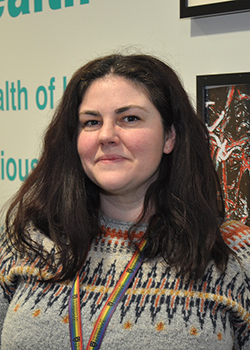
Jo is a Professor of Medical Micriobiology and Director of the Microbiome Innovation Centre.
Her research interests revolve around understanding how pathogens cause disease, in particular the opportunistic pathogen, Pseudomonas aeruginosa, and how it interacts with other species during infection particularly within polymicrobial biofilms. Deciphering these interactions could be key to both understanding the evolution of successful pathogens and the development of appropriate therapeutics. Jo's research combines genomics, molecular microbiology and population studies combined with relevant infection models.
Professor Steve Paterson, Director of the Centre for Genomic Research, University of Liverpool
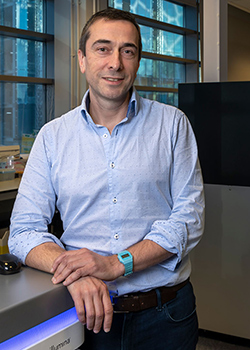
Steve received a degree in Genetics from Edinburgh and a PhD from Cambridge, followed by post-doctoral positions and a lectureship at Stirling before moving to Liverpool in 2003. His research focuses on genetic diversity and evolution in host-parasite interactions using clinical, laboratory and veterinary models.
He helped pioneer the evolve and resequence approach to experimental evolution and has worked widely in RNAseq, population genomics, microbiomes and epigenetics. During the pandemic he helped develop methods to sequence SARS-CoV2 variants from wastewater and led a consortium of laboratories delivering genomic surveillence to UK health agencies. He is a director of the Centre for Genomic Research, director of the Natural Environment Omics Facility (NEOF), which provides expert advice, capability and training to the environmental sciences community.
He established the Microbiome Innovation Centre, which provides a focus for academic and industry-facing microbiome research. He is able to offer PhD projects in the area of infectious disease, microbiomes, genomics and evolution.
Dr Gabriela Juarez Martinez Knowledge Transfer Manager – Microbiome, AMR & Vaccines, Innovate UK Business Connect
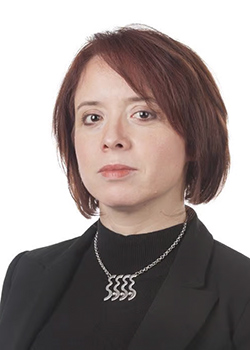
Gabriela Juarez Martinez is the Innovation lead for Microbiome, AMR, and Vaccines at Innovate UK Business Connect. She supports entrepreneurs in finding partners, funding, and opportunities to accelerate their innovations into real-world solutions. Her work spans the animal and environmental sectors. Gabriela has led collaborative and opportunity-finding missions to China, Colombia, Germany, the USA, and Mexico.
In her previous roles, she was a senior consultant managing industry-academic collaboration projects. Gabriela holds a BSc and MSc in Biomedical Sciences and a PhD in Bioelectronics. She is a former Enterprise Fellow of the RSE, which enabled her to establish her own scientific instrumentation company, which she ran for ten years, achieving international sales in 24 countries.
Session: Keynote Lecture
Professor Paul Ross, APC Microbiome Ireland
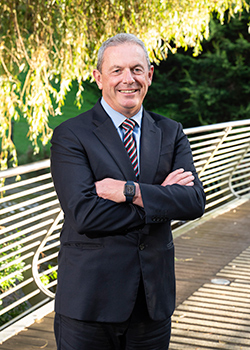
 Paul Ross is the Director of APC Microbiome Ireland since 2019 and Professor of Microbiology at University College Cork. Formally, he was Head of the College of Science Engineering and Food Science at the University before that Head of the Food Programme at Teagasc. He is a Principal Investigator at the Centre in the APC’s Microbes to Molecules Research Theme. His main areas of research are in antimicrobials and anti-infectives (applied and fundamental aspects), gut microbes and gut health, bacteriophage and human, animal and gut pathogens. He has won many awards along with being awarded a D.Sc. in 2009, a Fellow of the Academy of Microbiology and elected a member of the Royal Irish Academy (RIA), all in recognition of research achievement. He is also the recipient of an Advanced grant from the European Research Council (ERC).
Paul Ross is the Director of APC Microbiome Ireland since 2019 and Professor of Microbiology at University College Cork. Formally, he was Head of the College of Science Engineering and Food Science at the University before that Head of the Food Programme at Teagasc. He is a Principal Investigator at the Centre in the APC’s Microbes to Molecules Research Theme. His main areas of research are in antimicrobials and anti-infectives (applied and fundamental aspects), gut microbes and gut health, bacteriophage and human, animal and gut pathogens. He has won many awards along with being awarded a D.Sc. in 2009, a Fellow of the Academy of Microbiology and elected a member of the Royal Irish Academy (RIA), all in recognition of research achievement. He is also the recipient of an Advanced grant from the European Research Council (ERC).
Session: Human Microbiome Science and Innovation
Dr Simon McArthur, Senior Lecturer in Neuroscience and Pharmacology, Queen Mary, University of London

Following his PhD in Neuropharmacology and post-doctoral work at Imperial College London, studying how peripheral inflammation affected neuroinflammatory diseases Simon moved to Queen Mary, University of London in 2011, to further study inflammatory resolution and monocyte/macrophage behaviour.
In 2014 Simon moved to the University of Westminster where he first developed my interest in the mechanisms of the gut microbiota-brain axis, how gut microbes influence neurodegenerative disease, and whether these could be manipulated for therapeutic benefit. In 2016 he returned to QMUL as a Senior Lecturer in Neuroscience & Pharmacology in the Institute of Dentistry, where he continues this line of research.
Dr Oliver Hasselwander, Principal Scientist, Technical Fellow, IFF
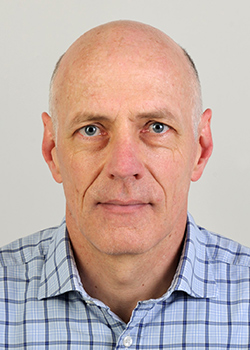
Oliver’s main responsibilities at IFF include technical and project leadership for R&D relating to microbiome-targeted solutions. He has 20+years’ experience in R&D, innovation, tech scouting, BD and project management in the health ingredient industry at IFF (Danisco, DuPont) and BASF. He has a degree in Nutritional Science from the University of Stuttgart-Hohenheim and a PhD in Clinical Biochemistry from The Queen’s University of Belfast.
He is a member of the International Life Sciences Institute Europe, American Society for Nutrition, KTN Microbiome Innovation Network Advisory Board, Scientific SC Member of the BBSRC OIRC INFORM Hub, Member of the Board of Directors of MRM Health, a Belgian Bio-Tech.
Professor Karen Scott, Personal Chair and Principle Investigator (Gut Microbiology), University of Aberdeen
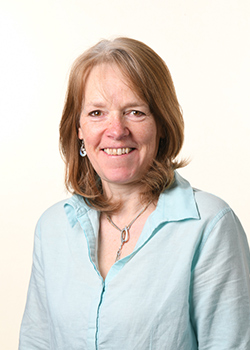
Karen Scott is Professor in Gut Microbiology at the Rowett Institute, University of Aberdeen. She leads a research team investigating how gut bacteria interact with the diet and human host, throughout life.
Products of gut bacteria are important for health, sending signals all round the body, and what we consume within our diet has huge effect on these important bacterial interactions. In vitro bacterial growth studies utilising our large culture collection of gut anaerobes and genome sequencing and bioinformatic analyses are used to investigate niche-specific processes and bacterial interactions, identifying key species as targets for enrichment or development.
Session: Animal microbiome science and innovation
Dr Caroline Griffin, Knowledge Transfer Manager, Innovate UK Business Connect
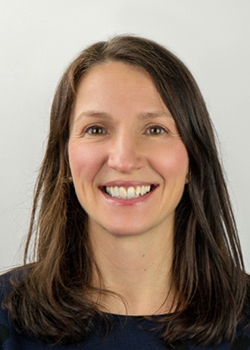
Dr Caroline Griffin is a Knowledge Transfer Manager at Innovate UK Business Connect. She specialises in Livestock and Aquaculture with her main area of interest being Aquaculture. She has over 25 years of experience working within aquaculture and environmental science in academic, government and private sector organisations.
She holds a PhD in Ecological Economics from the University of Stirling. She has an extensive network within the livestock and aquaculture industry and has many years of experience connecting businesses, researchers and other stakeholders and supporting commercially relevant innovation.
Dr Peter Graystock, Lecturer in Human and Animal Health, Imperial College London
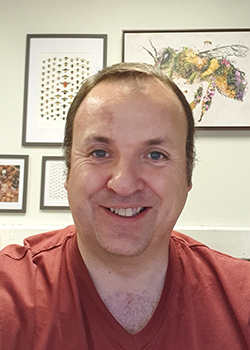
Pater is based at the Silwood Park campus of Imperial College London. He is the leader of the ‘microbiome rescue’ challenge as part of the new Leverhulme Centre for the Holobiont.
His research explores how to improve host health via microbial interactions, spanning crop and pollinator systems. Current projects include microbiome engineering and long-term community evolution both for the production of beneficial traits and improved host health.
Dr Rob Habgood, Head of Research, FOLIUM Science
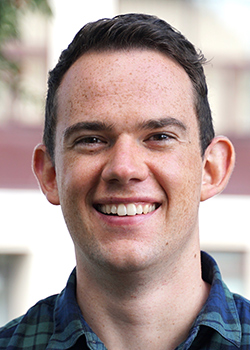
Rob is a leader in engineering biology and microbiome innovation. He completed his PhD in the Synthetic Biology Research Centre at the University of Nottingham in 2017 before working as a post-doctoral researcher at the University of Oxford.
Since 2020, Rob has been pivotal in developing a CRISPR-Cas platform (Guided Biotics®) to revolutionise and sustainably transform the way in which we produce our food. Responsible for shaping FOLIUM Science’s R&D pipeline, Rob has showed the utility of the technology to precisely control animal microbiomes and their metabolic activities, from precisely controlling zoonotic pathogens to mitigating emissions of ammonia and methane.
Professor George Oikonomou, Professor of Cattle Health and Welfare, University of Liverpool
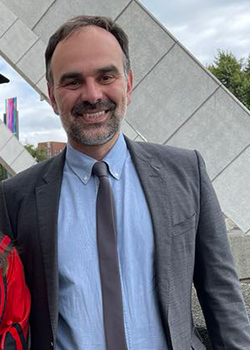
George studied Veterinary Medicine at Aristotle University of Thessaloniki. During his PhD studies, he investigated the genetics of energy balance and fertility in Holstein cows. He spent a few years managing a 600 cow dairy herd in Greece before moving to the USA where he worked as a research associate at Cornell University and got involved in various research projects on dairy cattle lameness, mastitis, and reproductive diseases.
He was a co-Project Director on a USDA-funded project studying the dynamics of the mammary microbiome and is currently studying dairy cattle lameness using genomic and microbiomic approaches and funded by BBSRC, Innovate UK, the Wellcome Trust, the Animal Welfare Foundation, and the Academy of Medical Sciences. The overarching objective of his research is the improvement of the welfare of dairy cattle and of the sustainability of dairy farms.
Session: Plant, soil and environment microbiome science and innovation
Dr Lindsay Williams, Post Doctoral Researcher, University of Edinburgh
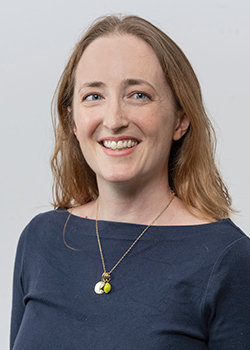
I am a post-doctoral researcher in the lab of Prof Steven Spoel at the University of Edinburgh, developing novel bioengineering strategies to boost post-harvest quality and safety. My research interests are the impact of harvest on the plant immune system and on host-microbiome interactions, particularly in leafy vegetable crops. In 2024, I completed my joint PhD in the labs of Prof Spoel and Prof Yasuomi Tada at Nagoya University.
Dr Lorena Rangel, Research Scientist, The James Hutton Institute
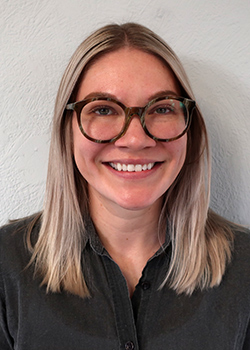
Lorena is a research plant pathologist in the Cell & Molecular Sciences department at the James Hutton Institute in Dundee, Scotland. Her research focuses on the foliar microbiome of agricultural crops or their wild progenitors and how phytopathogenesis impacts community structure. In particular, she is interested in investigating the potential to exploit the foliar and endophytic microbiome for tailored disease control of plant pathogenic bacteria and fungi.
Dr Tim Mauchline, Senior Research Scientist, Rothamsted Research
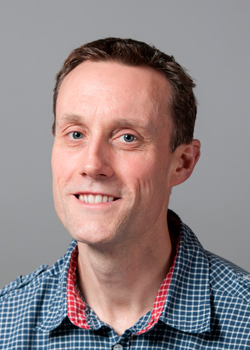
Tim has spent his entire research career studying microbial interactions in the plant root environment. He is interested in the ecology of microbial communities in cropping systems, with the overall aim of understanding the function and potential of plant-associated microbes for nutrient cycling, plant stress tolerance and plant disease suppression.
Recently, his research has focused on factors that shape the wheat root microbiome such as crop genotype, land management, fertilization regime as well as abiotic (e.g. drought, salt) and biotic factors. His ultimate goal is to maximize the contribution of microbes for the development of sustainable agricultural systems.
Dr Minshad Ansari, CEO, Bionema Group
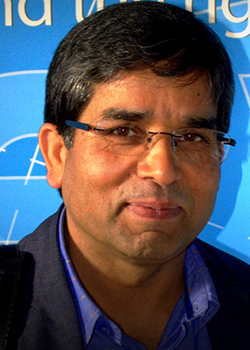
Dr Minshad Ansari is a visionary innovator in biological agriculture, bringing over 25 years of expertise in biocontrol, biopesticides, biostimulants, and biofertilisers. With a PhD in applied agriculture from Ghent University, Dr Ansari has authored over 80 articles and holds three patents.
As the CEO and Founder of Bionema Group, he has spearheaded the development and patenting of pioneering bioinsecticides, such as NemaTrident®, NemaSpreader®, and UniSpore®, all of which were acquired by Syngenta in 2021. In 2022, he introduced the groundbreaking IncapsuleX® technology, which enhances biocontrol efficacy by 20-30%. Dr Ansari's entrepreneurial drive and dedication to innovation have been instrumental in securing significant seed investments and grant funding, propelling Bionema’s growth and success. His unwavering commitment to innovation ensures Bionema's position as a leader in sustainable agriculture.
Professor Michael Cunliffe, Director of Science & Professor of Marine Microbiology, Marine Biological Association & University of Plymouth
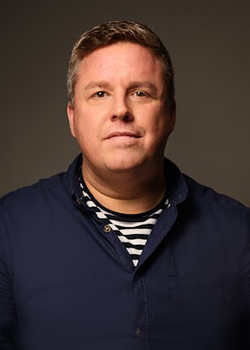
At the Marine Biological Association (MBA) I am the Director of Science and a Senior Research Fellow, as well as Professor of Marine Microbiology at the University of Plymouth.
My research covers the biology, ecology and evolution of aquatic fungi, with a global reach from the coastal waters around Plymouth to the open ocean and polar ecosystems. I led the establishment of the MBA Marine Fungi Culture Collection – a culture collection with over 500 fungal strains from seawater, sediments and seaweeds, including from the open Atlantic Ocean, Antarctic and Arctic.
Session: Creating Connections
Dr Basil Omar, Associate Professor of Strategy and Innovation and Programme lead of the MBA programme, Bristol Business School, University of West England, Bristol
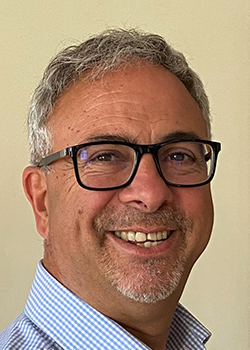
Dr Omar is Associate Professor in Strategy and Innovation and leader of the MBA programme at Bristol Business School. Basil has led numerous grant funded research projects, most recently in collaboration with several UK universities as part of the Redistributed Manufacturing in Healthcare Network.
He sits on the Advisory Board of the InnovateUK/KTN’s Microbiome Special Interest Group and is a former Vice President Business Development of the Bioenergy company Green Biologics. He is also an entrepreneur co-founding CHAIN Biotech, the UK microbiome start-up developing oral vaccines and immuno-therapies targeting the lower gastrointestinal tract with several therapeutic candidates in pre-clinical development.
Dr Alicia Showering, CEO, Bugbiome
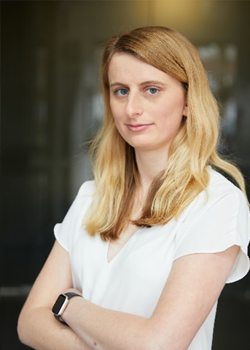
BugBiome utilises engineering biology to capture previously unculturable microbes from environmental surfaces, with a primary focus on crop samples. At the core of our platform is the hardware we have developed "AvidX '' allows us to screen insect behaviour, aiming to identify microbes with efficacy against pests.
We are currently focussed on targeting aphids that result in crop yield losses of up to 49% through the yellow viruses they transmit. Through leveraging advanced behavioural analysis, we are isolating microbes with aphicidal properties.
Dr Ronald Shannon, CEO, Wundrbiotics
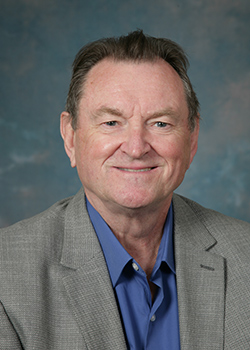
Ron has over 35 years' global experience in both large corporations and early-stage companies. He is a life science, health economics, epidemiology, data scientist, and value validation expert, successful consultant and microbiome entrepreneur
Dr Lydia Mapstone, CEO, BoobyBiome
Lydia is CEO of BoobyBiome, a company striving to correct infant gut Dysbiosis. Her passion for biotechnology-driven solutions drove Lydia to complete a microbiology PhD at UCL in 2022 and win iGEM's Best Therapeutic (2017), UCL's Grand Challenges (2020), and Innovate UK's Women in Innovation (2023) awards. She has additionally led BoobyBiome to win five awards from UK government agencies, totalling £2.6M in prize money. As an enthusiastic mentor, she additionally guest lectures at three UK universities on biotechnology and entrepreneurship.
Professor Kiran Patil, Co-Founder, Cambiotics ApS
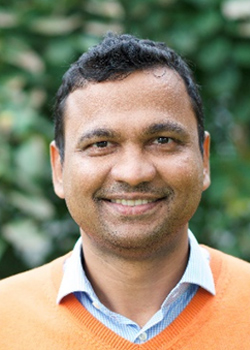
Kiran studied Chemical Engineering at the Indian Institute of Technology (Mumbai, India). He moved to the Technical University of Denmark (DTU) to work with Prof. Jens Nielsen and obtained his PhD in Systems Biology. Kiran was then appointed as Assistant Professor at DTU where he worked on transcriptional regulation and metabolic engineering.
In 2010, Kiran joined the Structural and Computational Biology Unit at the European Molecular Biology Laboratory (EMBL-Heidelberg, Germany). He was appointed Director of Research at the MRC Toxicology Unit in 2019, and appointed as Professor of Molecular Systems Biology in October 2022.
Dr Miles Priestman, Co-Founder, Salient Bio
Salient Bio is a UKAS-accredited laboratory specialising in microbiome analysis combined with conventional diagnostic testing. We have optimised our workflows for gut, oral, and vaginal microbiome tests and combine these with our gold standard blood, faecal, and other testing capabilities. We use these multimodal data to investigate novel diagnostics using machine learning to define signatures of disease. These microbiome-based diagnostics are paving the way for early detection of a variety of hard-to-diagnose conditions, especially those that disproportionately affect women.
Miss Lucy Hope, Founder, Daughters of Mars Ltd
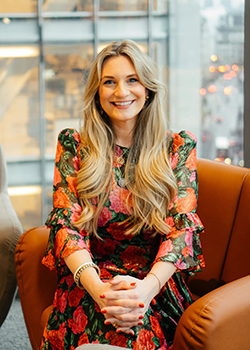
Lucy is a development professional and product developer working in STEM, with a passion for driving innovation in health tech and FemTech. She is the Director of Virustatic, a protein science SME, and Founder of Daughters of Mars Ltd, an innovative period-care startup dedicated to developing and launching disruptive, functional period care products for the benefit of half the globe’s population. Lucy is a recent alumna of the FemTech Lab Spring ’24 cohort and recipient of Innovate UK’s Women in Innovation Award 24/25
Mrs Ivana Lokobauer, Owner, Fermented Freak
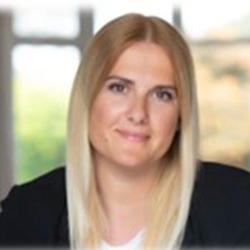
Fermented freak is a microbiome friendly cosmetic startup founded in Ireland 2022 by Ivana Lokobauer, MSc. in Biotechnology. Ivana created the brand to offer a unique fermentation skincare using yeast fermentation postbiotic ingredient Saccharomyces Cerevisiae filtrate as a main active ingredient. Saccharomyces Cerevisiae filtrate contains valuable postbiotic ingredients like minerals amino acids and vitamins created in the process of yeast fermentation that help nourish and enhance natural skin microbiome. Fermented freak produces small batches and uses fully naturally derived ingredients packed in the inert silicone reusable packaging.
Day 2 speakers
Panel Discussion: Support for Microbiome Innovation in Liverpool City Region
Mrs Lorna Green, CEO, LYVA Labs
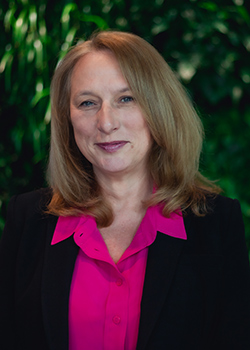
Lorna Green is an innovation and commercialisation leader. Formerly Director of Enterprise and Growth at the Innovation Agency (NWC AHSN), Lorna worked in the NHS and commercial medical technology companies in a range of health professional, sales, marketing and business development roles.
Lorna founded LYVA Labs- an agency that invests in and supports innovative businesses, driving economic growth and creating jobs for Liverpool City Region (LCR) in 2021. It successfully delivered the Innovate UK National Microbials Accelerator. Lorna sits on the Innovate UK Microbiome Advisory Group, LCR Innovation Board, Baltic Ventures and chairs the Lifted Ventures LCR board to support female founders.
Professor Janet Hemingway, iiCON Founding Director, LSTM
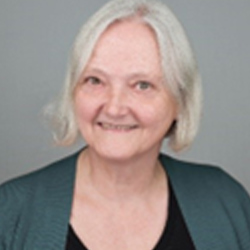
Janet Hemingway is the Founding Director of the Infection Innovation Consortium (iiCON), and former Director of the Liverpool School of Tropical Medicine (LSTM).
Responding to the growing challenge of infectious diseases, antimicrobial resistance, and emerging pandemics, iiCON brings together academic, industry, and clinical partners in a > £170 million programme to transform the discovery and supply of much-needed anti-infectives and accelerate their journey to market.
She was awarded a CBE for services to the Control of Tropical Disease Vectors in 2012 and is a Past President of the Royal Society of Tropical Medicine and Hygiene.
Professor Jo Fothergill, Director of the Microbiome Innovation Centre, University of Liverpool
Mr Francis Lee, Business Development Manager, STFC Hartree Centre
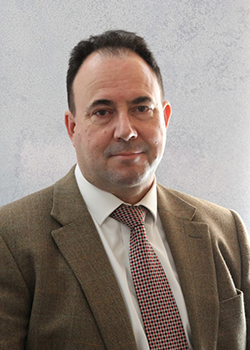
Francis is Business Development Manager for the UK Government’s Science and Technology Facilities Council Hartree Centre which provides world-leading facilities and expertise in advanced digital technologies, including high performance computing, data analytics, machine learning, quantum computing and artificial intelligence.
Previous roles have been within the wider Civil Service, the FT (fDi Intelligence) and academic and governmental institutions both in the UK and abroad focusing on the development of public/private partnerships, commercialisation, IP, policy development and joint research and innovation programmes. Interests include net zero and energy, life sciences, smart manufacturing, digital twins, languages, Chester rugby club and messing about in boats.
Panel Discussion: Microbiome Data Sciences, Biobanking and Standards
Professor Colette Shortt, Regulatory Consultant, Visiting Professor University of Ulster
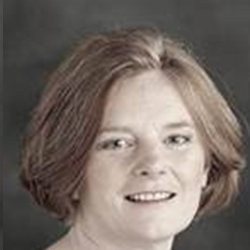
Colette (MSc, PhD, MBA) is a regulatory consultant and a registered public health nutritionist with over 30 years industry experience gained in European and Global scientific and regulatory leadership roles. She is active in scientific advisory boards focussed on innovation, microbiomes & health. As Global Regulatory Affairs Director for Emerging Science & Open Innovation, working with both J&J Consumer Health, and Janssen Accelerator, Colette conducted regulatory due diligence on microbiome projects.
Colette is a member of the European Council of the RAPS, Fellow of the RSM & the AfN & Joint Editor-in-Chief of the CABI Food Science & Nutrition Cases.
Dr Chrysi Sergaki, Principal Scientist, Medicines and Healthcare products Regulatory Agency
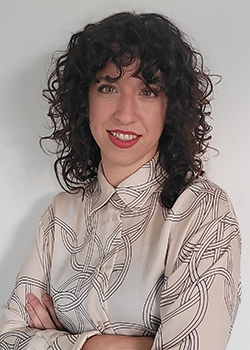
Dr Chrysi Sergaki is the Microbiome Group Leader at the Medicines and Healthcare products Regulatory Agency (MHRA), UK, leading the microbiome standardisation program, with 18 World Health Organization (WHO) endorsed projects to develop International Reference Reagents for the microbiome field as well as research projects investigating the role of the microbiome in AMR, cancer immunotherapies and vaginal infections. She has led the development and establishment of the 1st WHO International DNA Reference Reagents for microbiome analysis and Whole Cell reference reagent for the DNA extraction of microbiome samples, by coordinating a large, international multi-sector collaborative studies. Chrysi is currently leading the development of AMR standards for use in AMR surveillance and resistome analysis.
Before joining the MHRA, Chrysi completed her PhD at the University of Warwick, UK, researching microbial interactions in fungi and bacteria and their impact on the host.
Professor Nicola Holden, Professor of Food Safety, Scotland’s Rural College
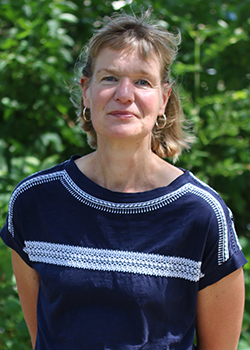
Nicola Holden is a Professor of food safety at Scotland’s Rural College (SRUC). As a microbiologist, she aims to increase our basic understanding of plant-microbe interactions for both microbial communities, microbiomes, and individual pathogen strains. The work has broad relevance for pathogen transmission, crop health and sustainable agriculture.
Nicola leads the SRUC Food Security challenge centre, bringing researchers together with industry and stakeholder organisations around food production challenges. Nicola holds a policy fellowship with Scottish government, to generate a register of Scottish expertise and resources on One Health pathogens. She brings expertise in sharing and accessing sequence-based data on microbes.
Dr Matthew Ryan, Senior Research Lead Biological Resources, CABI
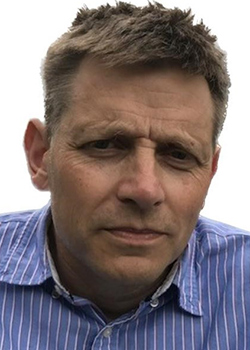
Matthew Ryan is Senior Research Lead of Biological Resources at CABI and currently leads projects relating to microbiome, soil health, fungal genomics and microbial preservation / biobanking Matthew is project lead for the BBSRC funded UK Crop Microbiome Cryobank and is a key contributor to two significant EU projects, The European Microbiome Biobanking Enabler (EU Microbe) and Microbes for Climate (M4C).
Matthew is a member of the BBSRC Equality, Diversity and Inclusion Expert Advisory Group Internationally, he is an advisor to the United States Culture Collection Network and a board member of the International Alliance for Phytobiomes Research.
Martin Beracochea, MGnify Production Project Lead, EMBL-EBI
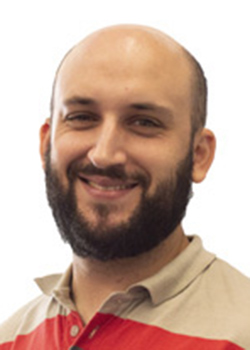
Martin is the Production Project Lead at MGnify, a platform that facilitates the assembly, analysis, and archiving of microbiome-derived data. He oversees technical operations, managing the development and maintenance of web services and bioinformatics pipelines.
Platinum Sponsor Talk
Mike Hoptroff, Senior Research and Development Manager, Unilever
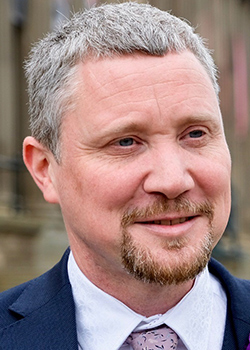
Michael has over 25 years’ experience in skin microbiology and microbiome research. During a wide ranging career he has published on topics including dandruff, hygiene, skin condition and oral care and worked on product innovations for leading brands including Dove, Vaseline, CLEAR, Signal and Lifebuoy. During his career Michael has spent time working in the UK, USA and China where he spent 4 years heading Unilever’s biological research team before returning to the UK.
Panel Discussion: Addressing Key Challenges in Microbiome Innovation
Professor Jo Slater-Jeffries, CEO, National Biofilms Innovation Centre
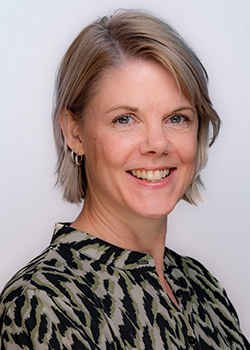
Jo is the CEO of the National Biofilms Innovation Centre and has been a Director and Trustee of the Asthma, Allergy and Inflammation Research (AAIR) charity since 2011. She started her scientific career as a Senior Scientist and Quality Manager at Sciona Ltd., a spin-out company combining lifestyle data and genetic analysis. Between 2011 and 2018 she held the position of General Manager for EpiGen, a global research consortium. Jo holds a BSc Honours in molecular biology and an industrial sponsored PhD from the University of Portsmouth. In 2014, Jo received an MBA, and in 2017 became a Chartered Manager at the Chartered Management Institute. In 2022, Jo was recognised for her contribution to Enterprise and Knowledge Exchange by the University of Southampton and appointed as Professorial Fellow (Enterprise).
Ms Clara Desvignes, Director, Drugs, Medical Devices and Microbiome based products, Voisin Consulting Life Sciences
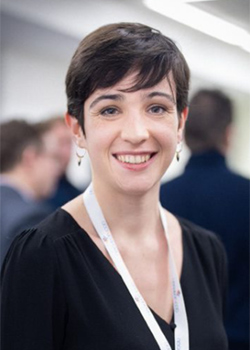
As Director at VCLS, Clara supports companies in the development and implementation of global regulatory strategies for the development, evaluation and marketing of drugs & medical devices, as well as combination products. She leads the Microbiome products regulatory expertise in both the medical (drugs incl. biologics and Live Biotherapeutic Products, medical devices, combination products) and food arenas. She is specifically in charge of projects involving microbiome-related technologies such as prebiotics, probiotics and postbiotics, for which she coordinates the regulatory, nonclinical, clinical and CMC related activities. Clara participates to the development of regulatory science in that domain by building alternative regulatory paths for emerging products, supporting development plans toward regulatory agencies, and promoting awareness through expertise associations and working groups.
Dr Sean Simpkins, Genetic Modification Regulatory Science Lead, Department of Environment, Food and Rural Affairs (DEFRA)
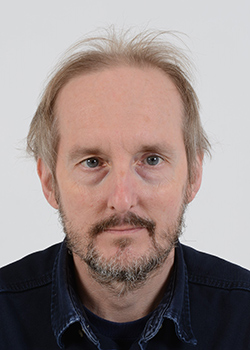
I am the Genetic Modification Science regulatory lead for the UK Department of Environment and Rural Affairs, and was appointed to this role in November 2022, having previously been a GM evidence specialist within DEFRA from 2019.
My doctorate research was on the Molecular Microbiology of Rhizobium spp. I have over 20 years’ experience in the area of molecular diagnostics and systematics of quarantine bacterial pathogens. My responsibilities include the science and regulation of GMOs form initial research and development within the laboratory to their use in either veterinary and clinical medical trials, or agricultural field trials.
Mr Lee Metcalf, Team Lead – Microbial Upstream, CPI
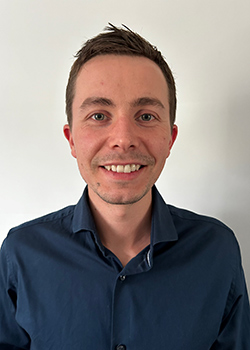
Lee gained a BSc in Biochemistry from the University of Leeds and over the last 10 years has held roles in GMP biologics manufacturing and tech transfer into large scale industrial biotechnology. He is currently Team Lead in the Microbial Upstream team at CPI working with a range of organisms to produce recombinant therapeutic proteins and vaccines.
Mr Craig Thomson, Partner: Patent Attorney, HGF IP Ltd
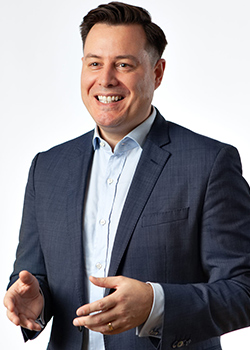
Craig has considerable experience in providing pragmatic, commercially focused IP advice to a wide-range of clients and in relation to microbiology and molecular biological tools.
Craig drafted the IP chapters of the Innovate UK Microbiome KTN’s “Microbiome Strategic Roadmap” document and of the recent report on “The need for biobanking infrastructure in the UK”. He was invited to be the IP advisor to the Innovate UK Microbials Accelerator Programme. As the Head of the HGF microbiome focus group, Craig leads a team of patent attorneys with a variety of specialisms such as bioinformatics, synthetic biology AgBio and formulation technologies.
News, Networks, Funding and Prizes
Dr Pedro Carvalho, Knowledge Transfer Manager, Innovate UK Business Connect
.jpg)
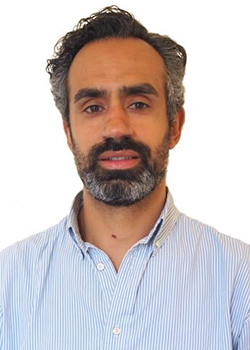
Pedro is a Knowledge Transfer Manager in the AgriFood Team at Innovate UK KTN. His work focuses on plant and crop production, helping innovative companies and research organisations finding collaborators, and to applying for public and private funding. Pedro’s subject areas include but are not limited to, precision farming, controlled environmental agriculture, biological and sustainable solutions to agriculture challenges. Pedro holds a PhD in crop science from the University of Nottingham and has expertise in crop based agriculture, obtained from a career undertaking research in both academic and commercial environments in the areas of nitrogen use efficiency, water uptake, plant/crop phenotyping and developing innovative biofertilisers.
Dr Jethro Johnson, Innovation Track Principal Investigator, Kennedy Institute of Rheumatology, University of Oxford
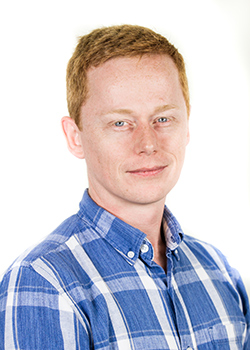
Dr Jethro Johnson is a principal investigator at the Kennedy Institute of Rheumatology, University of Oxford, where his research is focussed on understanding the microbiome as a mediator of environmental impacts on host immunity. He is deputy director of the Oxford Centre for Microbiome Studies (www.kennedy.ox.ac.uk/ocms) and co-lead of the Oxford Microbiome Network.
Dr Alex Price, Programme Development Manager, Microbiology Society
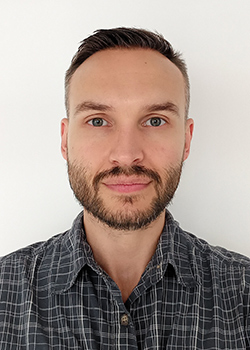
Alex is the Programme Development Manager at the Microbiology Society, a UK-based membership organisation for microbiologists with a global membership. He previously held a research position in environmental microbiology, before joining the Society in 2021. Working with our members, collaborating organisations and others, he is responsible for building an events programme that supports discussion and advances in priority areas as well as serving the microbiology community as a whole.
Dr Fleuriane Fernandes, Senior Portfolio Manager, BBSRC
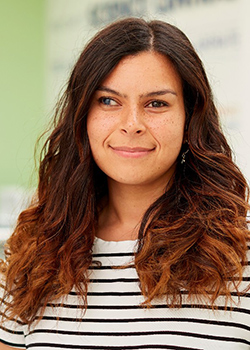
I am a senior portfolio manager at BBSRC within the business interaction unit looking into enabling collaborative R&D in the health sector. I have a background in academia and industry in the fields of algae cultivation and microbiology.
Mr Ellis Emwanta, Senior Strategy Manager – NHS Innovation and One Health, Department for Business and Trade

Ellis works with a network of UK and overseas teams in over 100 overseas markets to provide tailored support for NHS organisations and UK One Health companies in developing their international strategy and facilitating global projects.
Ellis is a results-driven Strategy Manager with over a decade’s worth of experience within the civil service in driving organisational objectives through strategic planning, policy development, stakeholder engagement, cross-functional collaboration, and project management. Ellis has a postgraduate degree in Business Economics and Finance and is an Associate Member of the Chartered Institute of Export & International Trade.
Mr David Browning, Strategic Advisor, Precision Health Technologies Accelerator
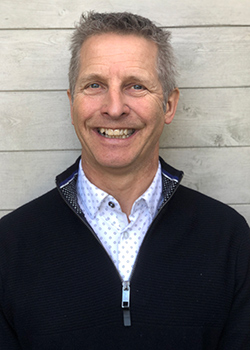
David applies 40 years comprehensive life sciences knowledge with an extensive industry expert and stakeholder network to support entrepreneurs, translating scientific discoveries to deliver global market impact, including Entrepreneur in Residence, Institute of Cancer Research, strategic advisor to multiple growth companies and organisations including Precision Health Technologies Accelerator with a focus on microbiome.
Key experience includes: NHS Biochemist, Johnson & Johnson clinical diagnostics innovator, Philips Personalised Medicine lead, MD MediCity / SVP Innovation BioCity (Pioneer Group), growing innovation-led business communities. CEO roles include Fixed Phage (NexaBiome) focusing on bacteriophage-based products, Oxford Cancer Biomarkers and Oxonica Healthcare
Back to: Microbiome Innovation Centre